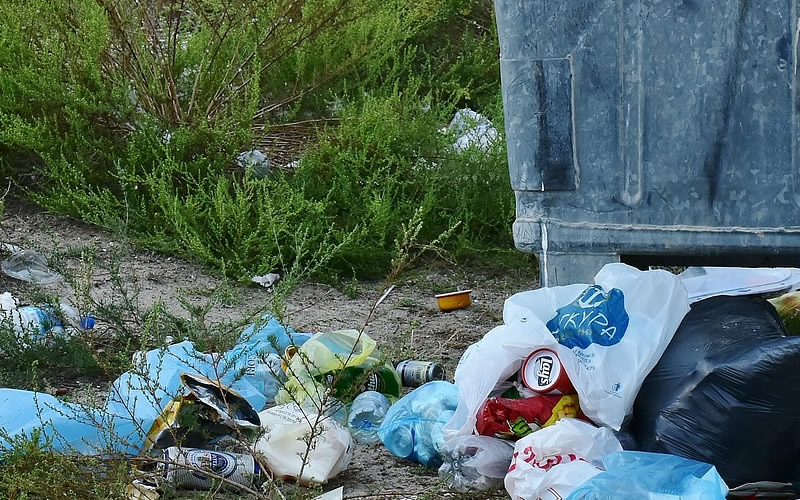
By Lindsay Street, Statehouse correspondent | A bill to ban plastic bag bans that is designed to protect big business is an egregious example of state government overreach into local affairs, opponents say.
Earlier this month, the S.C. House of Representatives passed a bill 73-41 that preemptively disallows local governments from enacting bans on single-use plastic bags and other plastic items. Wags jokingly refer to the measure as the “plastic bag-ban ban.”
The House bill comes as coastal communities in the state have been adopting such bans since 2015. This week, House bill H. 3529 received a Senate committee’s blessing to make it to the floor for debate. But it’s unclear if there will be enough time for the bill to come up this year. Because it’s on the Senate’s contested calendar, there are a lot of bills that take precedence. However, supporters have two options, both of which have occurred this year: Either vote to take up the bill as a special order or invoke a special one-day rule that could force the debate.
Issue of government autonomy at local level
S.C. Rep. Micah Caskey, R-Lexington, was one of the few non-coastal Republicans in the House to vote against the House bill. While he doubted the reasons behind local municipalities passing plastic bag bans, he said it should ultimately be up to those governments to decide.

“I see the question as a matter of local government autonomy,” Caskey said. “If we do not allow local governments to make a decision about this then why do we even have local governments?”
Supporters for the bill have said it will increase the cost of doing business if municipalities or counties are allowed to ban certain containers.
According to the National Conference of State Legislatures, 10 states have enacted legislation preempting local governments from imposing a ban or fee on plastic bags: Arizona, Florida, Idaho, Indiana, Iowa, Michigan, Minnesota, Mississippi, Missouri and Wisconsin. There is also a bill pending in Ohio.
State governments typically take preemptive action on traffic enforcement, according to Tiger Wells, government affairs liaison for the Municipal Association of South Carolina. He said that helps people traveling between cities “to know the laws of however many municipalities or counties you pass through.”
An example of this is the state ban on texting while driving. Several municipalities had enacted their own ordinances banning the practice before the state enacted its own statewide ban. Preempting other local ordinances is infringing on local governments’ authority, which is why the Municipal Association has been lobbying against the statewide bag ban effort, Wells said.
However, there is precedent for state preemptive action beyond traffic enforcement in South Carolina. Wells said there have been bans on “new local taxes” and “strict limitations on the ability to raise existing millage rates on the local level.” He said both examples have made it difficult for local governments to provide services to residents.
Opponents point to home rule
The latest preemptive bill has an environmental component — preventing communities from banning plastic bags, which can litter waterways and endanger wildlife. But its opponents are laser-focused on the issue of home rule.

“H. 3529 is an example of state government overreach. If passed, this bill would prevent cities and towns from making important, local decisions — such as how to address plastic pollution,” said Rebecca Haynes, deputy director of the Conservation Voters of South Carolina. “Local communities should have the ability to make independent decisions at the local level to reflect the needs and desires of their residents without interference from state government.”
Mount Pleasant is the latest S.C. municipality to enact a ban on single-use plastic containers. But if the House bill passes in its current form, the town would not be able to keep its ban, despite a grandfather clause. That clause is only for local governments that passed the ban prior to Jan. 31, 2018.
“It’s sad to see our South Carolina government do exactly what they despise the federal government for doing,” Mount Pleasant Mayor Will Haynie said in a statement to Statehouse Report. “Support of the principle of home rule in South Carolina is similar to support of First Amendment rights — it’s not for just when they agree. In fact, it is to protect local governments from state overreach in situations exactly like this. Coastal municipalities have unique issues and responsibilities. The legislature should respect that.”
This week, another town, Hardeeville, is also considering a ban.
More than a coastal issue
While banning plastic bags has mostly been enacted in coastal communities, Wells said the issue reaches beyond “just a coastal issue.”
“(This is) their fundamental right and authority to address these kinds of local issues,” Wells said. “Taking away that right or curtailing that authority in a very real way is something that’s alarming to us as an association that represents municipalities.”
Novolex, which operates a plastic plant in Hartsville, has been lobbying for the measure, according to Wells. Novolex did not respond to a request for comment, and neither did S.C. Sen. Gerald Malloy, D-Darlington, who represents Hartsville. According to The State, the American Progressive Bag Alliance has opposed plastic-bag bans and spent $30,500 lobbying S.C. lawmakers in 2017. The Alliance also did not respond to a request for comment.
In a poll released this week by Winthrop, 60 percent of respondents said stricter environmental laws and regulations are worth the cost.
- Have a comment? Send to: feedback@statehousereport.com


